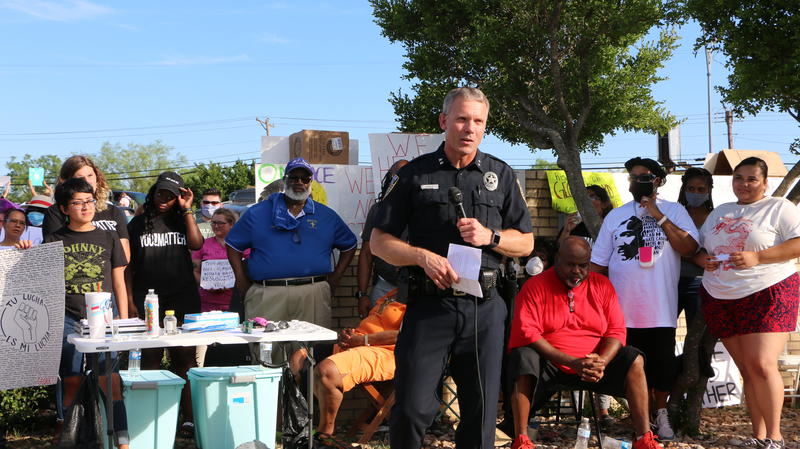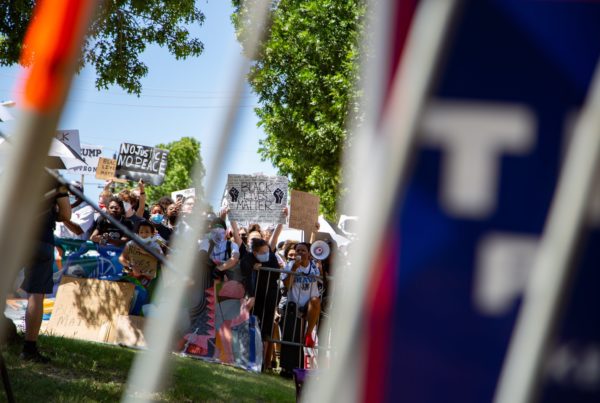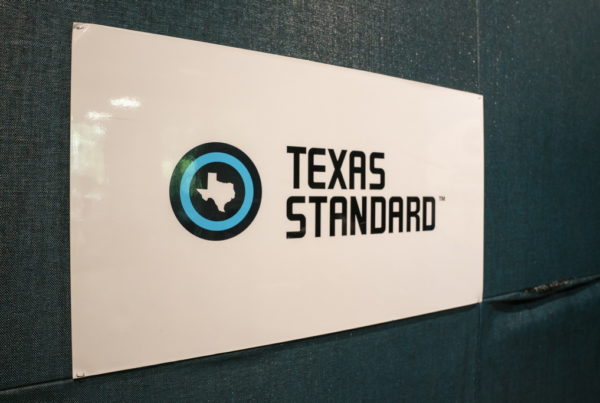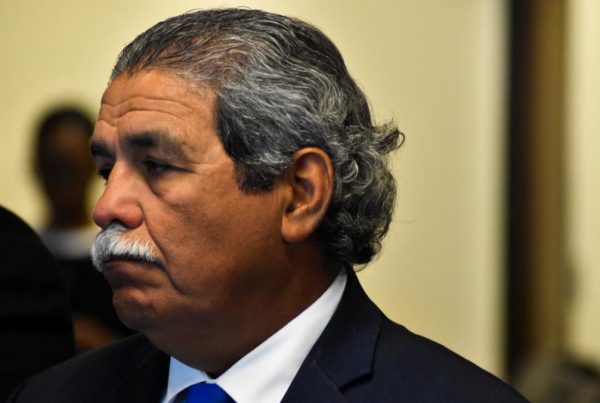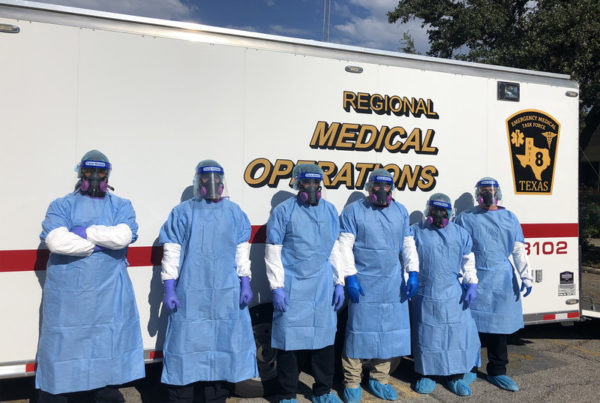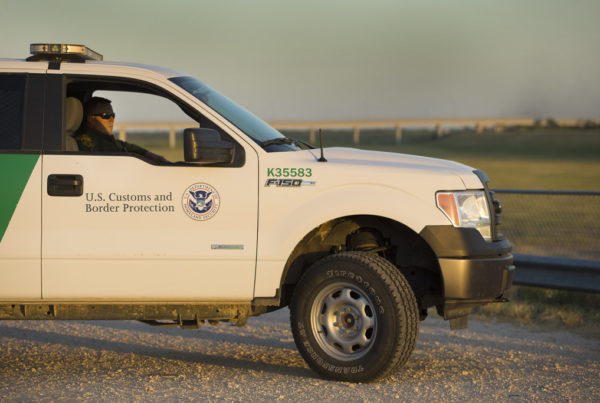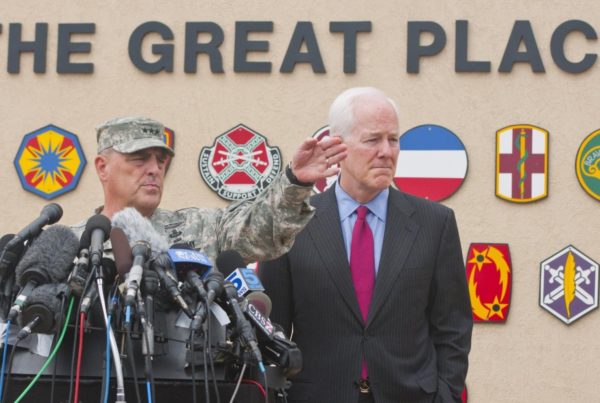From KACU:
The U.S. police force is in the headlines and under scrutiny, and that’s affecting police departments’ ability to recruit new officers. As some cities discuss whether to defund or reduce police department budgets, Abilene, Texas is trying to fill a police academy class.
Black Lives Matter protests and marches in Abilene have been peaceful. The first march to protest George Floyd’s death started in the police department parking lot, and featured a message of solidarity from the chief. Police cars flanked marchers along the route, using their vehicles to block traffic from cross streets.
At a different protest last week, Police Chief Stan Standridge laid out the basic frame work for a new initiative to build trust between the community and the department.
“Recognizing that our collective experiences may be different than yours, but through our differences, and through relationship and fellowship we can ultimately begin that new beginning.” Standridge told the gathered crowd.
A protestor shouted back, “We hear it. We want to see it!” Standridge responded, “You Will see it! We’re calling this initiative Threshold because we will be the first, we as in the police department will be the first to step through the door to meet you.”
Standridge said he intends to give local residents a peek behind the “police curtain”. While it’s not the goal, developing a better understanding between police and community members could also benefit the department’s recruiting efforts, which Standridge says were struggling even before protests against police brutality erupted nationwide.
“We almost always recruit from U.S. military installations. We also recruit in some of our colleges, especially the colleges that have criminal justice fields. COVID-19 changed all that. So class 58 with the exception of digital recruiting, and I think we may have done some billboards, we haven’t been able to recruit.” Standridge said.
And Abilene isn’t alone as it searches for new recruits to keep the department fully staffed.
“I’m not sure what Houston’s current staffing is, but I know we’ve heard from some of the agencies in the metroplex area, including the largest in the Metroplex, that they have quite a few vacancies,” said Gene Ellis, police chief in Belton, Texas, and the president of Texas Police Chief’s Association.
Chief Ellis said police departments typically see a spike in applicants when the economy hits a snag, like in 2008.
“Our applicant pools were in the hundreds for a long time, for probably a couple of decades,” he said. “And there were times when the numbers weren’t as strong, when the economy’s doing great, but we were still seeing very strong numbers. And then probably the last eight or ten years those numbers have not been as strong. And then they got really weak over the last, probably, two or three years.”
But this year, with so many other factors at play, Ellis said it remains to be seen whether departments will get a bump in applications.
Abilene’s Chief Standridge said back in 1994, he crowded into the convention center with about 400 other applicants to take the civil service exam. This year about 240 recruits signed up. Standridge’s vision is a diverse academy class of 15 men and women, Hispanic, white and black cadets.
“I would love to see another African immigrant in this academy class,” Standridge said. “We’ve actually hired several. And our biggest success story has always been officer Fidele Sebahizi, who fled the African continent because of genocide.”
Abilene’s police department has a lot to offer. The starting pay is $53,000. They have new vehicles and the latest body armor and technology.
But getting the badge is no cakewalk. After weeding out more than half of the applicants with the exam, many more recruits drop out along the way, flunking background checks or failing to meet the training’s academic and physical demands.
“It sounds incredibly long, laborious,” Standridge admits. “But if you think about it, we want to get it right on the front end, so we aren’t making national news.”
Standridge says the key to the hiring the right officers is understanding their motivation.
“Why do you want to put on the uniform? Especially right now with the national scrutiny,” he said. “Why would you want to put on the uniform? And if the answer isn’t rooted in service, then that’s probably not going to be a very good applicant.”
About a dozen cadets started last year’s police academy, but as graduation approaches in July, only six remain.
The window for applications to next year’s class closes on Sunday, June 14.


